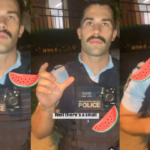What is the Offence of Drug Supply in New South Wales?

It has been reported that at around 1.15pm, Thursday 3 April 2020, a 37-year old man from Lane Cove in the lower northern suburbs of Sydney attended a hotel on Elizabeth Street in the Sydney CBD to deliver a box of fruit to a man under quarantine pursuant to a public health order relating to COVID-19.
It is alleged that police searched the fruit box and located an envelope containing a quantity an MDMA (ecstasy) capsule.
The man was then searched and a bag of white powder, believed to be cocaine, was allegedly found on him.
The man was charge with drug supply (for the MDMA pill) and drug possession (for the substance believed to be cocaine and is due to appear in Downing Centre Local Court on 19 June 2020.
The offence of drug supply in New South Wales
Section 25(1) of the Drug Misuse and Trafficking Act 1985 (NSW) (‘the Act’) states, “A person who supplies, or who knowingly takes part in the supply of a prohibited drug is guilty of an offence.”
The charge of drug supply can be brought where there is evidence that you were involved in the process of supplying drugs to another person.
To prove the offence, the prosecution must prove beyond reasonable doubt that:
- You supplied, or took part in the supply of, a substance, and
- The substance was a prohibited drug, and
- You knew, or believed at the time, that the substance was a prohibited drug.
You must be acquitted if the prosecution is unable to prove each of these ‘elements’.
Deemed supply
It should be noted that under section 29 of the Act, a charge of drug supply can be brought where you are found in possession of at least the ‘traffickable’ quantity of a drug, even if there is no evidence you were actually supplying the drug. This is known as ‘deemed supply’.
If a charge of deemed supply is brought, it will be up to you to establish – on the balance of probabilities (ie more than 50%) – that the drugs were possessed for something other than supply – eg for personal use only or that you were merely holding them for the owner with the intention of returning them (this is known as the ‘Carey defence’, and also applies to actual supply).
Penalties
The maximum penalties for drug supply are as follows:
Drug Type/Quantity Categories
| Drug Type | Small Quantity | Indictable Quantity | Commercial Quantity | Large Commercial Quantity |
| Ecstacy (MDMA) | 0.25grams | 1.25grams | 125grams | 500grams |
| Cocaine | 1gram | 5grams | 250grams | 1kg |
| Amphetamines | 1gram | 5grams | 250grams | 1kg |
| Heroin | 1gram | 5grams | 250grams | 1kg |
| Cannabis | 30 grams | 1kg | 25kg | 100kg |
Maximum penalties
| Quantity Category | When Dealt with in Local Court | When Dealt with In District Court |
| Less than Small Quantity | 2 years prison and/or $5,500 fine | 15 years prison and/or $220,000 fine |
| At Least Small Quantity but Less Than Indictable Quantity | 2 years prison and/or $11,000 fine | 15 years prison and/or $220,000 fine |
| At Least Indictable Quantity but Less Than Commercial Quantity | 2 years prison and/or $11,000 fine | 15 years prison and/or $220,000 fine |
| At Least Commercial Quantity but Less Than Large Commercial Quantity | Not Applicable | 20 years prison and/or $385,000 fine |
| At Least Large Commercial Quantity | Not Applicable | Life imprisonment and/or $550,000 fine |
The definition of drug supply comprises “knowingly taking part in” a wide range of activities involved in the distribution, provision and/or sale of prohibited drugs.
What does drug supply include?
Drug supply can include supplying drugs to friends without payment, sending drugs in the post, and being part of a group of people buying drugs with combined funds, selling them and splitting the proceeds.
Even if a drug that you supply doesn’t contain an illicit substance, if you have represented it as an illegal drug you can still be charged and convicted of drug supply.
Which court will the case be heard in?
Charges of drug supply for less than the commercial quantity can be dealt with in the local court, where there is a maximum penalty of two years’ imprisonment.
For amounts between the indictable and commercial quantity, the prosecution can ‘elect’ (choose) to take the case to a higher court, such as the district court.
Supplying a commercial quantity of drugs can only be dealt with in the higher courts, where there are more severe maximum penalties.
Going to court for drug supply?
If you have been charged with drug supply, call Sydney Criminal Lawyers anytime on 9261 8881 to speak with a specialist criminal defence lawyer who is vastly experienced in defending serious drug cases.






